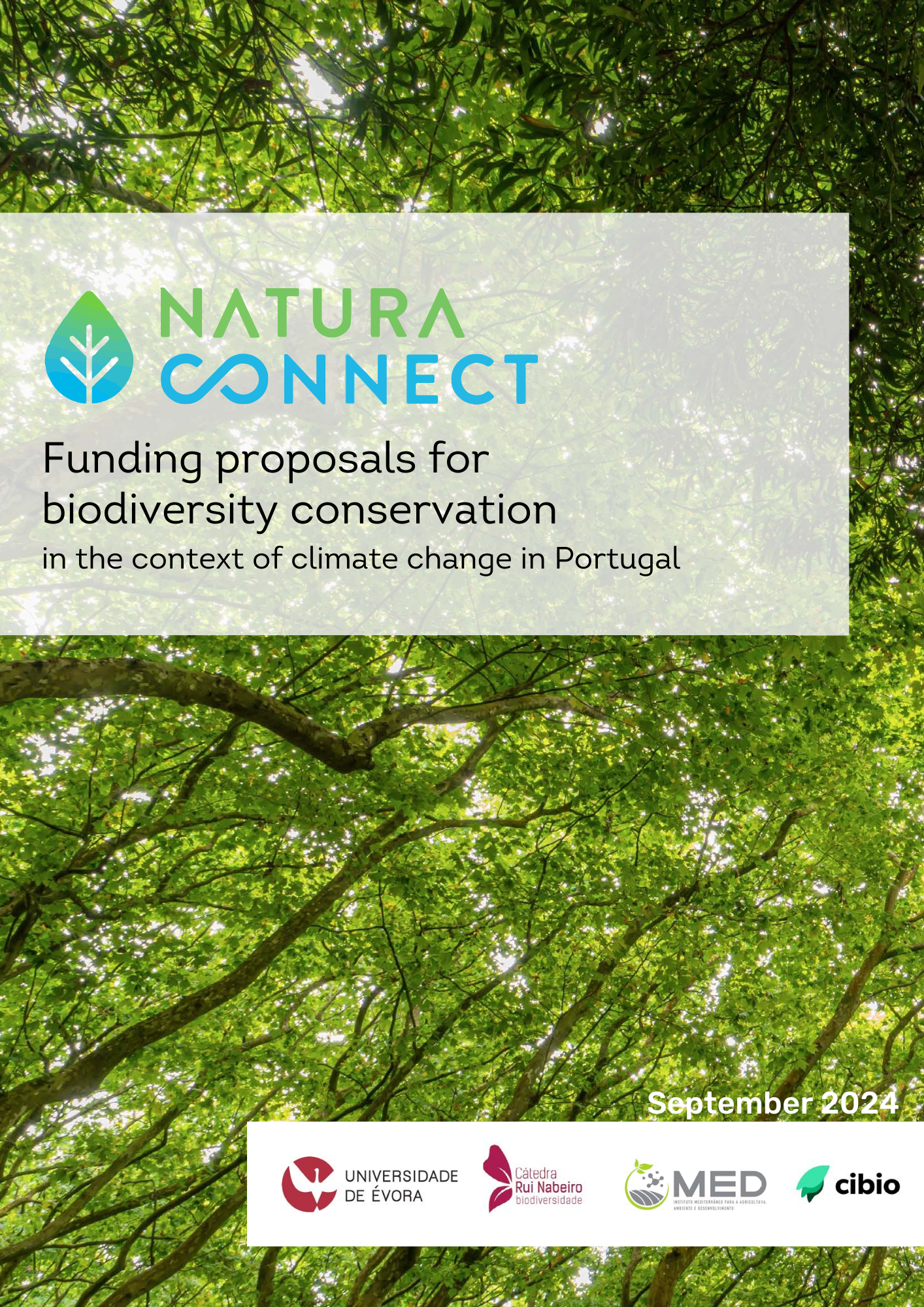How can biodiversity conservation be funded?
Think Tank NaturaConnect.PT presents recommendations to achieve the goals of the European Biodiversity Strategy 2030
The NaturaConnect.PT Think Tank, an initiative organised by the University of Évora – ‘Rui Nabeiro’ Biodiversity Chair, which brings together representatives of public, private and civil society entities, is releasing recommendations for guaranteeing funding for biodiversity conservation in Portugal in the context of climate change. This reflection group is part of the ‘Natura Connect – Designing a Resilient and Coherent Trans-European Network for Nature and People’ project, funded by the European Union, and involves MED researchers Miguel Bastos Araújo, Carla Cruz and Carla Janeiro.
In the European Union, more than 80% of protected habitats and 70% of non-avian species are in an unfavourable state (European Environment Agency, 2020). In response to this situation, the European Biodiversity Strategy (BSE 2030) stipulates ambitious targets, including the protection of 30 % of the terrestrial and marine surface, one third of which should be strictly protected. For Portugal, meeting these targets means mobilising a minimum of 260 million euros in annual funding.
“Given Portugal’s territorial matrix, with around 97 per cent private property, any intervention to promote biodiversity conservation requires the identification of articulated solutions supported by public and private funding, which involve long-term commitments,” says Miguel Bastos Araújo, head of the Biodiversity Chair and coordinator of the NaturaConnect.PT Think Tank.
The document that summarises the reflections of the NaturaConnect.PT Think Tank highlights the need to lay the foundations for BSE 2030 funding in Portugal, presenting proposals to optimise existing mechanisms and suggesting new funding tools, of which ten measures stand out:
- Review and evaluate public subsidies that harm biodiversity, especially in agricultural and forestry policies, and progressively eliminate them;
- Leverage existing European funds to finance land acquisition, improved management of natural areas and ecological restoration;
- Prioritise the restoration of natural functions and processes in ecosystems, avoiding additional present and future costs;
- Reinforce the financing of management contracts with conservation and restoration objectives and develop remuneration systems for the ecosystem services provided by biodiversity;
- Promote the application of the polluter-pays and user-pays principles, ensuring that the funds generated are used directly for biodiversity conservation and ecological restoration;
- Transfer funding obtained by applying these principles to protector-recipients who use this funding for conservation initiatives in classified areas;
- Create a biodiversity credit market to mobilise private funding and guarantee the monitoring and permanence of long-term benefits;
- Create a legal ‘conservation easement’ to ensure the effectiveness of conservation commitments and increase the confidence of private investors;
- Reinforce public investment in the NATURAL.PT brand to promote Portugal as an attractive destination for investing in biodiversity conservation;
- Equalise the tax benefits granted to donations to environmental causes with those granted to social causes.
Biodiversity is a public good that supports countless processes essential to life, such as climate regulation, water purification, the formation of fertile soils, the pollination of agricultural crops and pest control. Its degradation not only jeopardises the health of ecosystems, but also the resilience of our societies. As Miguel Araújo says, ‘Investing in the management and restoration of biodiversity is not just a legal imperative; it is a way of ensuring the continuity of ecological services that are vital to the economy and the well-being of populations.’
‘Last week’s devastating fires are a tragic reminder of the consequences of not promoting more biodiverse landscapes,’ notes Araújo. ‘Biodiversity is not only a natural asset to be preserved, but also a fundamental component of the functioning of ecosystems, helping to create natural barriers that minimise the impact of disasters.’
The creation of new financial mechanisms that align the private sector with conservation objectives, through incentives that promote sustainable land management practices, is therefore a pressing need to ensure that the benefits of biodiversity are maximised and become a central element of our policy for enhancing the territory and minimising natural risks.
Adapted from a press release published by the PT NaturaConnect project team on 27.09.2024
